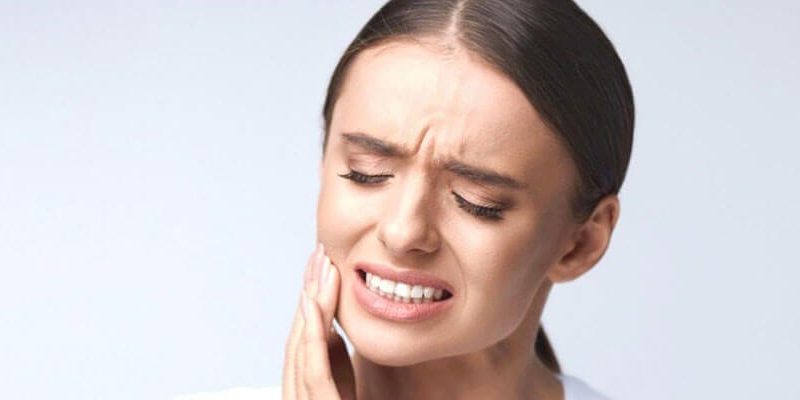The technical name for teeth grinding, clenching the jaw, or the lock jaw is Bruxism. It sometimes happens to people as they sleep or concentrate or stressed. It can happen while sleeping or while awake; consciously or without knowing it; to adults as well as to children. Grinding your teeth or clenching your jaw is more than nervous habits to be ignored; such acts can mean serious problems for oral health ,including excessive tooth wear and/or the development of temporomandibular joint pain dysfunction syndrome.
Causes:
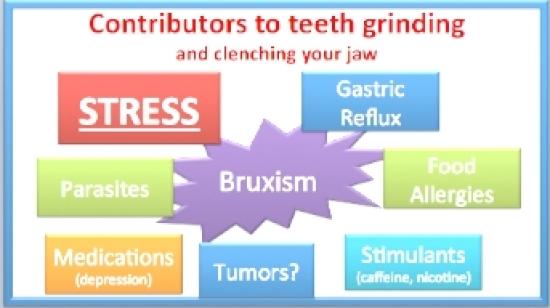
Causes of Teeth grinding ( Bruxism)
The primary causes of teeth grinding are stress and anxiety. At first,a person may be conscious of doing this (if they’re awake), but over time, the physical activity itself becomes a habit. Once the clenching and grinding are automatic,they are hard to stop.
Causes:
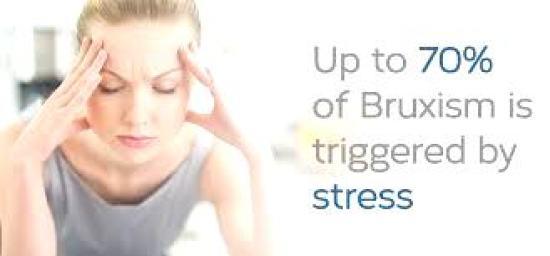
Other causes include; Occlusal discrepancies, Allergies, Mg++ deficiency etc.
Effects of Bruxism:
Causes:
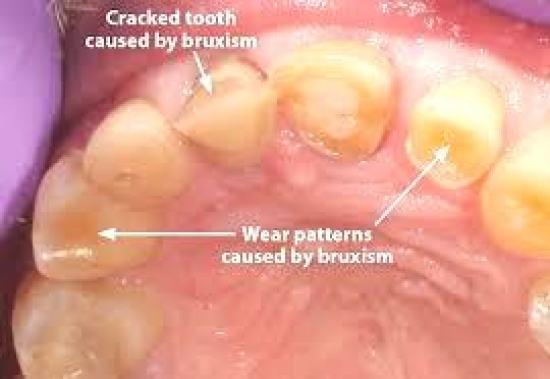
- Aching of the jaw muscle.
- Tenderness and fatigue in jaw·
- Grinding or clicking sound in your jaw·
- Teeth changing shape over the time·
- Sensitive teeth and Gums·
- Breakage of teeth and restorations·
- Headaches & temporomandibular joint pain dysfunction syndrome.
- Difficulty in normal mouth movements·
- Indentation or teeth marks on tongue.
Treatment:
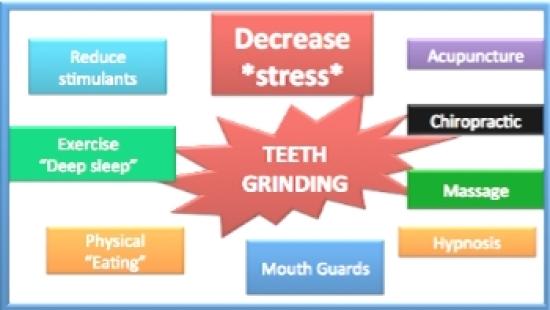
Treatments for teeth grinding
Simplest solution for preventing damage to teeth from bruxism is use of professionally made mouth guard/ occlusal splint/ night guard. A mouth guard for teeth grinding is a custom-fitted oral appliance that is made of plastic/acrylic. This type of mouth guard is worn during sleep and prevents the teeth from scraping against each other.
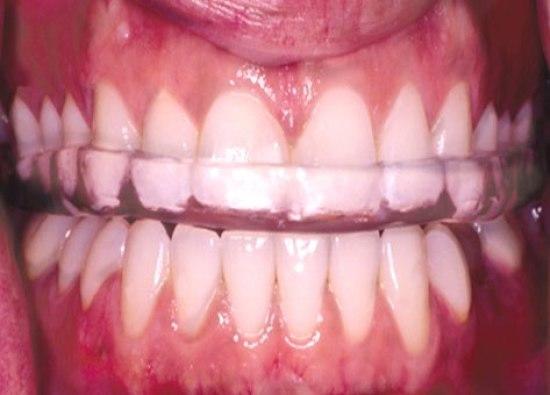
Mouth guard
- Occlusal adjustment- This would result in immediate disappearance of habitual grinding of teeth. Any prematurities or occlusal interference in restorations should be able to withstand the forces of bruxism.
- Restorative treatment
- Psychotherapy: Counselling the patient can lead to a decrease in tension and also create a habit awareness.
- Relaxation training by massages.
- Physical therapy: If musculoskeletal pain and stiffness are associated with bruxism,a brief course of physical therapy is appropriate.
- Medications can be prescribed for few days to alter the sleep arousal and anxiety.
- Biofeedback: This is a technique that utilises positive feedback to enable the patient to learn tension reduction.
- Electrical method: Electrogalvanic stimulation for muscle relaxation is currently being utilised for treatment of bruxism
- Orthodontic corrections
Tips for Teeth Grinding:
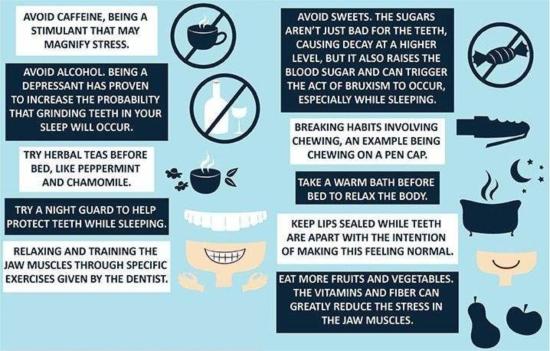
Avoid caffeine, alcohol and sweets. Use herbal teas and eat more fruit and vegetables.
Conclusion:
Bruxism is a very common problem now a days, main cause is stress. It may leads very serious dental and other oral health issues if ignored or timely not treated.


